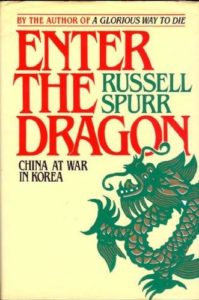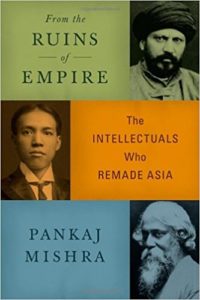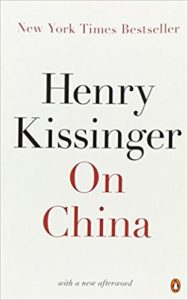To China: a few excerpts from a moonofalabama post. Link is at bottom of post. Short on words. Read somewhere, Chinese appear to be rude and abrupt. Apparently in China, it is rude to take up another’s time. Once you know Chinese well they can be quite chatty. In Sri Lanka (and SA I assume) ask for direction, and they want have a long conversation on random stuff. Ahh, cultural differences.
I was under the impression the Chinese did not have westernized elite like South Asia (e.g Jinnah,Nehru, SWRDB). I had read about Sun Yat Sen, first President/Prime Minister and about his being kidnapped in the UK from one of my fathers book. From the short article and little more digging, there was an Westernized Chinese elite. However, the west did not honor agreements (whats new) brokered by this Westernized Chinese elite. I think as a result the influence of this Westernized Chinese elite was marginalized and repudiated. Here are two examples of Westernized Chinese elite. Wellington Koo, International law and diplomacy PhD (1912) from Columbia University. His wife Hui-Lan ‘Juliana’ Oei (Madame Koo) apparently was one of the first ladies to indulge in civilian flying and drove her own motor car about London…a little grey two-seater Rolls Royce.

To the excerpts
99 years ago, on May 4th 1919, the original Tiananmen student protest broke out. The students protested the Allied Powers’ betrayal at Versailles: The German Shangdong colony was given to Japan instead of returning it to China. This despite China’s sending of 140,000 men to work on the Western front.
Germany took the port city of Qingdao (Tsingtao) on the Shangdong Peninsula where they brought over beer tech giving birth to Tsingtao Beer.
In 1890 Germany played a leading role in attacking the Chinese capital Beijing to suppress the Boxer Rebellion together with the 8 Nation Alliance of Britain, France, United States, Germany, Italy, Russia, Japan and Austria-Hungary.
As World War I wore on longer than anybody expected, the Allied Powers faced acute labor shortages. Britain came up with a scheme to recruit Chinese labors. But China was neutral so she had to be persuaded to join the war. China wanted to have the German Shangdong colony returned. Entered U.S. President Woodrow Wilson. Wilson asked China to join the war and promised support for China to gain Shangdong back after Germany’s defeat.
While the young republican China sees Britain and France as ruthless Imperial Powers, it has an enormous regard for the U.S. which it hopes to model itself after. Top Chinese diplomat was the American educated Wellington Koo. Madam Koo, an international style icon, popularized Cheongsam/Qipao dresses.
China did as Wilson asked, entered the war against Germany and send 340,000 men to help with the Allied war effort. 140,000 went to the Western Front, 200,000 went to Russia. Chinese comprised the largest non-European labor force on the Allied side during World War I. On the Western front, the 140,000 Chinese labor were know as the Chinese Labour Corp. They dug trenches, worked in timber yards, build steamers, repair railroads. 6,000 were even sent to Iraq to work in Basra.
Unbeknownst to China, while China joined the war on the allied side at the U.S. urging, hoping to gain back Shangdong province, the U.S. and Japan signed the secret Lansing-Ishii Agreement in 1917 where they recognized each other’s special ‘interests’ in China. Japan’s interest is the German colony Qingdao. Fully believing Woodrow Wilson’s promise of self-determination, the top Chinese diplomat Wellington Koo, who won the Columbia-Cornell Debating Medal in his American school days, argued passionately for the return of the Shangdong Peninsula at the Paris Peace Conference.
The Soviets saw a chance to draw China away from the West and into their camp. They leaked details of the secret U.S.-Japan Lansing-Ishii agreement to Eugene Chen in Paris, who then leaked it to the Chinese press. Furious Chinese students took to street to protest at this betrayal especially by the U.S.
Japan then threaten to veto the League of Nations, which would not work without Japan, unless … the U.S. agreed to give Germany’s former Shangdong colony to Japan. Wilson dutifully complied and decide to honor the Lansing-Ishii agreement, selling the Chinese down the river.
Disillusioned with the West and seeking for an alternative political model leads some to look to the newly found Soviet Union. Two leading intellectuals of the May 4th movement, Li Dazhao (left) and Chen Duxiu(right), co-founded the Chinese Communist Party. While heading the Peking University library, Chinese Communist Party co-founder Li Dazhao would influence a young student working there. His name was Mao Zedong.
http://www.moonofalabama.org/2018/05/the-historic-background-of-chinas-perception-of-the-west-by-carl-zha.html#more



